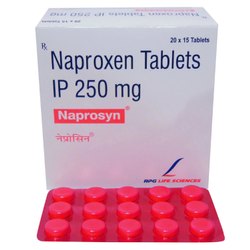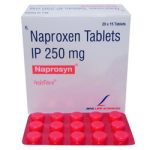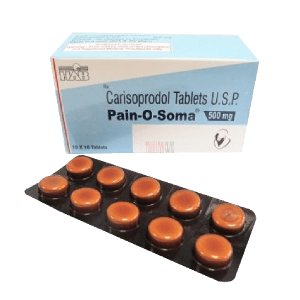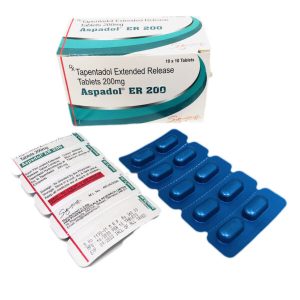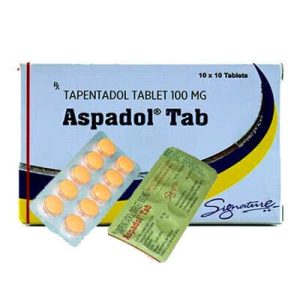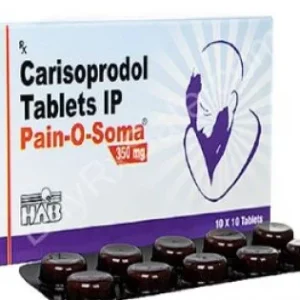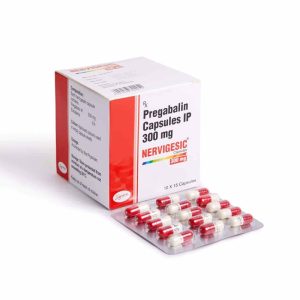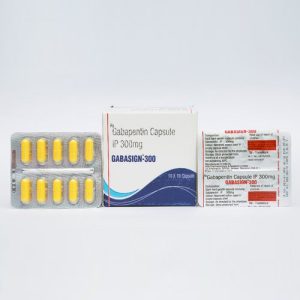Brand Name: Naproheal
Dosage: 250mg, 500mg
Packing: Blister of 1×15 pills
Manufacturer: Healing
What is naproxen?
Naproxen is a nonsteroidal anti-inflammatory drug (NSAID). It works by reducing hormones that cause inflammation and pain in the body.
Naproxen is used to treat pain or inflammation caused by conditions such as arthritis, ankylosing spondylitis, tendinitis, bursitis, gout, or menstrual cramps. It can also be used to treat acute pain caused by other conditions not listed in this medication guide.
The delayed-release or extended-release tablets are slower-acting forms of naproxen that are used only for treating chronic conditions such as arthritis or ankylosing spondylitis. These forms will not work fast enough to treat acute pain.
Naproxen is also available in combination with other medications under the following brand names: Aleve PM, Aleve-D Sinus and Cold, Treximet, and Vimovo
Warnings
You should not use naproxen if you have a history of allergic reaction to aspirin or other NSAID (nonsteroidal anti-inflammatory drug).
Naproxen can increase your risk of fatal heart attack or stroke, especially if you use it long term or take high doses, or if you have heart disease. Even people without heart disease or risk factors could have a stroke or heart attack while taking this medicine.
Do not use this medicine just before or after heart bypass surgery (coronary artery bypass graft, or CABG).
Get emergency medical help if you have swelling of the face or throat, chest pain, weakness, shortness of breath, slurred speech, or problems with vision or balance. Stop taking naproxen and notify your physician if you notice stomach pain, tiredness or weakness, yellow skin or eyes, nausea, vomiting, bloody or black and sticky bowel movements, skin rash, unexplained weight loss or weight gain, or swelling of the hands and feet.
Naproxen may also cause stomach or intestinal bleeding, which can be fatal. These conditions can occur without warning while you are using this medicine, especially in older adults.
Before taking this medicine
Naproxen may also cause stomach or intestinal bleeding, which can be fatal. These conditions can occur without warning while you are using this medicine, especially in older adults.
You should not use naproxen if you are allergic to it, or if you have ever had an asthma attack or severe allergic reaction after taking aspirin or an NSAID.
Ask a doctor before giving naproxen to a child younger than 12 years old.
Ask a doctor or pharmacist if it is safe for you to use this medicine if you have:
heart disease, high blood pressure, high cholesterol, diabetes, or if you smoke;
a history of heart attack, stroke, or blood clot;
a history of stomach ulcers or bleeding;
asthma;
liver or kidney disease;
fluid retention: or
if you take aspirin to prevent heart attack or stroke.
If you are pregnant, you should not take naproxen unless your doctor tells you to. Taking a NSAID during the last 20 weeks of pregnancy can cause serious heart or kidney problems in the unborn baby and possible complications with your pregnancy.
It may not be safe to breastfeed while using naproxen. Ask your doctor about any risk.
Naproxen is not approved for use by anyone younger than 2 years old. Do not give this medicine to a child without medical advice.
How should I take naproxen?
Use naproxen exactly as directed on the label, or as prescribed by your doctor. Do not take this medicine in larger amounts or for longer than recommended. Use the lowest dose that is effective in treating your condition.
Shake the oral suspension (liquid) well just before you measure a dose. Measure liquid medicine with the dosing syringe provided, or with a special dose-measuring spoon or medicine cup. If you do not have a dose-measuring device, ask your pharmacist for one.
If you change brands, strengths, or forms of this medicine, your dosage needs may change. Ask your pharmacist if you have any questions about the kind of naproxen you are using.
If a child is using this medicine, tell your doctor if the child has any changes in weight. Doses are based on weight in children, and any changes may affect your child’s dose.
If you use this medicine long-term, you may need frequent medical tests.
This medicine can cause unusual results with certain medical tests. Tell any doctor who treats you that you are using naproxen.
Store at room temperature away from moisture, heat, and light. Keep the bottle tightly closed when not in use.
Read all patient information, medication guides, and instruction sheets provided to you. Ask your doctor or pharmacist if you have any questions.
What happens if I miss a dose?
Since naproxen is sometimes used only when needed, you may not be on a dosing schedule. If you are on a schedule, use the missed dose as soon as you remember. Skip the missed dose if it is almost time for your next scheduled dose. Do not use extra medicine to make up the missed dose.

